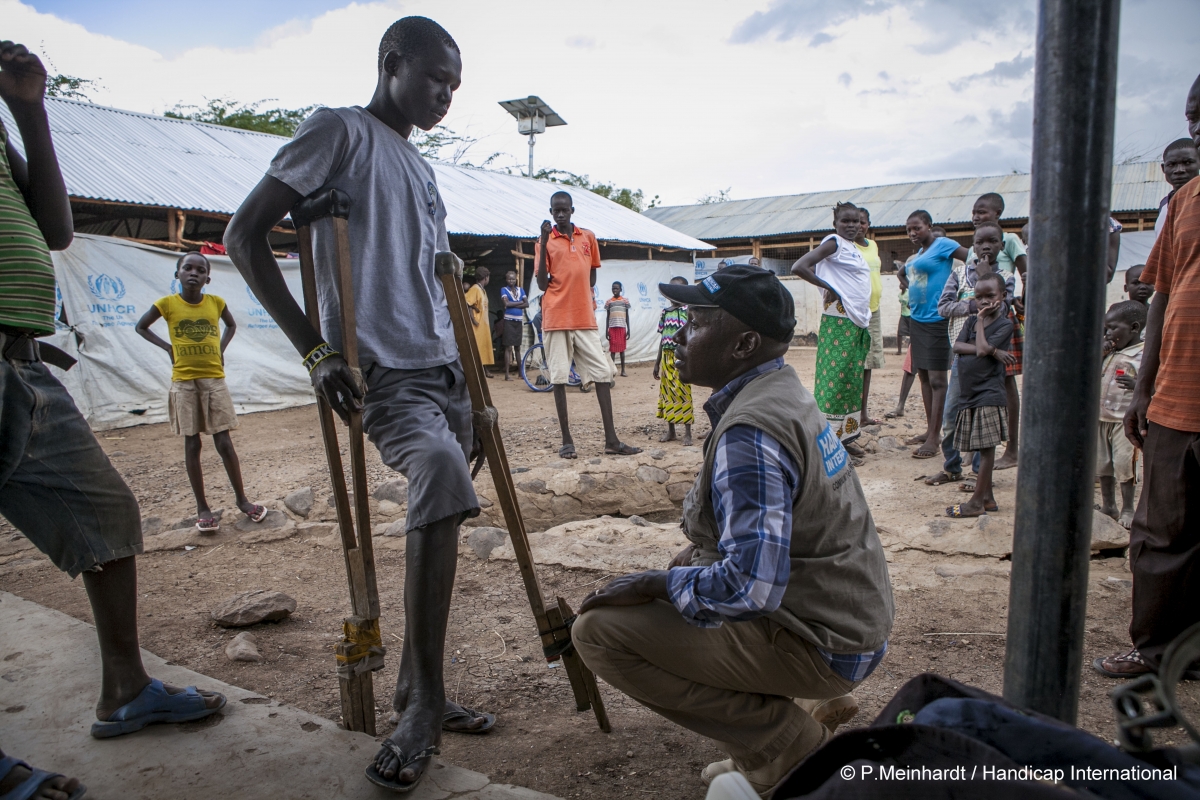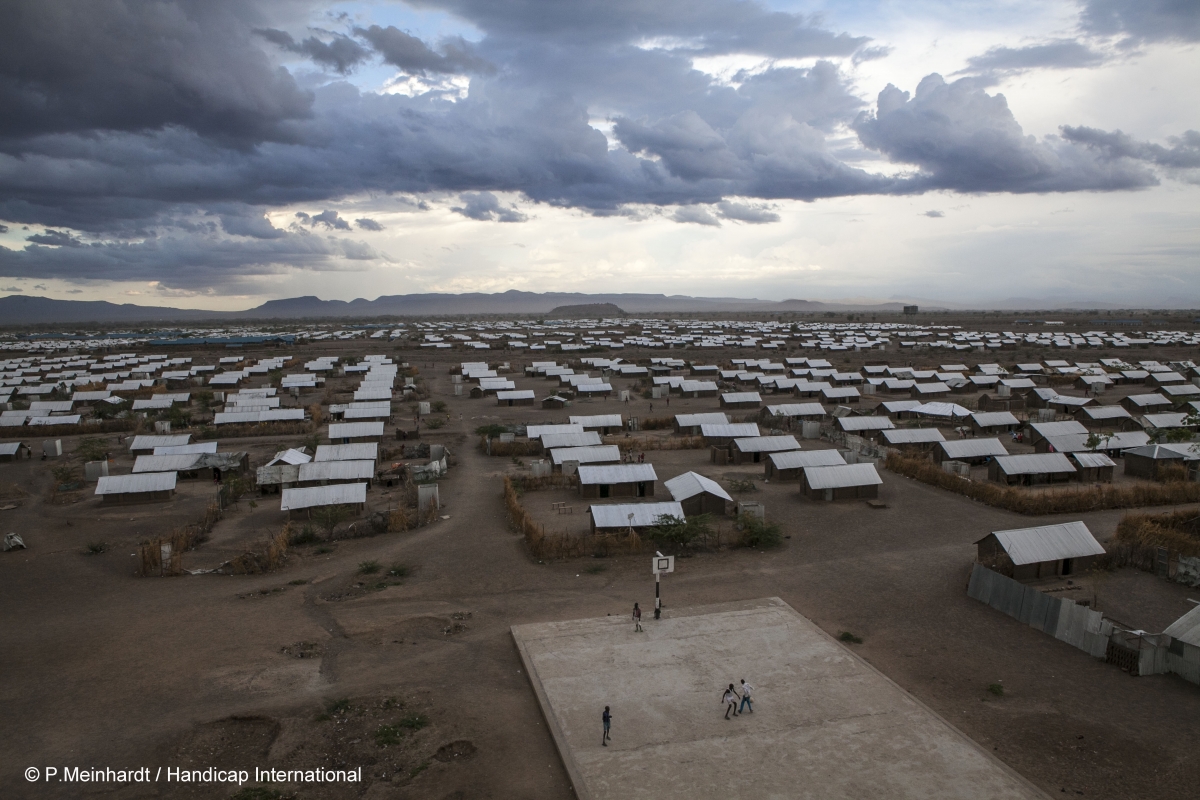South Sudan Refugee Crisis: “We left without our parents”
The refugee crisis in South Sudan is one of the most alarming humanitarian situations in the world. Millions of South Sudanese are fleeing from brutal violence and extensive food insecurity. 86% of those who seek safety in neighbouring countries are women and children, including at least 75,000 children who have become separated from their families, many of whom are in poor health.

Agnès Natima, 18 months, arrived at the camp 2 months ago. She suffers from severe malnutrition. | © P.Meinhardt / Handicap International
Injured, hungry and relieved
When Simon, 17, and his four young sisters arrived at a refugee camp near the Kenyan border, he told us that all he could feel was relief. The responsibility of keeping his sisters safe had clearly been weighing heavily on him during their journey from South Sudan. A journey that Simon was forced to make on improvised wooden crutches, with an untreated gunshot wound in his left thigh.
Simon was shot in December 2016. His family had no food left so he was searching for honey and wild fruits to feed his sisters when he ventured into an area too close to the fighting. The health centre near his village was abandoned so his injury has been left untreated and his leg is now severely affected. He walks slowly and is often in pain.

Simon at the Kakuma refugee camp
A difficult decision
Simon tells us that his parents felt they had no other option but to send the children to Kenya after struggling for years to keep the family together. They used to grow sorghum and vegetables for sale, which provided enough food for everyone and Simon was able to go school. But successive droughts meant they lost almost all of their crops and the war caused food prices to rise. They lived in constant fear of the fighting and became increasingly worried about Simon’s leg.
Safety and Hope
Having lived through such a long period of violence and uncertainty, Simon seems more mature and composed than most teenagers. He explains what happened to him in confident English and tells us that he has missed studying. He left his home with the hope that in Kenya he would be able to get proper treatment for his leg and an education for his sisters. Handicap International and partners will support him every step of the way, starting with new crutches and physical rehabilitation.
The scale of the crisis
Simon’s story is part of a much larger disaster. 6 million people in South Sudan, approximately half of the population, are currently facing extreme food shortages. Thanks to concerted humanitarian intervention, the most severely affected areas are managing to stave off famine, but the UN food agency has warned that the crisis is actually worsening, with more people in need of food assistance than ever before.
1.9 million South Sudanese are internally displaced and a further 1.9 million are registered refugees in neighbouring countries. Uganda alone currently hosts 977,746 South Sudanese refugees and, with thousands more arriving each day, will reach 1 million in the coming weeks. These are unprecedented circumstances, even for a country with a long history of welcoming refugees.

Kakuma refugee camp
Handicap International
Handicap International is present in South Sudan. We work primarily in camps to ensure that people with specific needs; including people with disabilities, the elderly and other vulnerable groups, can access the services they need and are protected from abuse and discrimination.
We are also improving care for South Sudanese refugees in Ethiopia, and Kenya. For example, we recently launched a health programme in Ethiopia’s border camps that aims to provide a more certain future for refugee children with malnutrition.
Handicap International is alarmed by the number of South Sudanese refugees arriving in Uganda and is especially concerned for people who may need specific support. We do not have an existing presence in the country, but due to the severity of this crisis, we are launching a new national programme.





